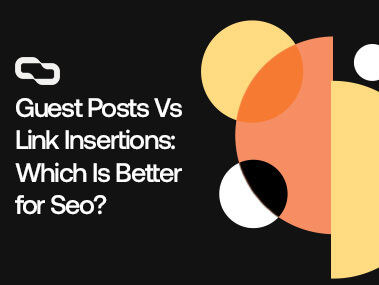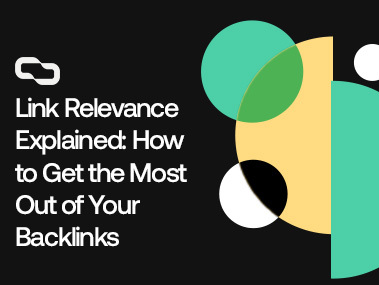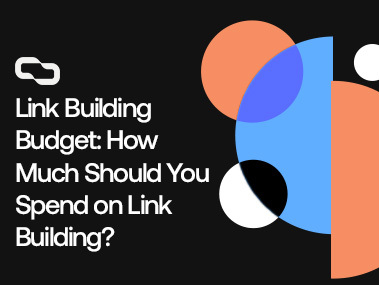Link Exchange 101: Swap Backlinks the Right Way
Looking to improve your site’s SEO through link exchange?
Learn how to harness this strategy effectively without triggering search engine red flags.
Our article cuts through the jargon to present practical link exchange tactics that enhance your visibility while upholding best practices.
Key Takeaways
- A link exchange is an agreement between two websites to link to each other content, aiming to increase visibility in search engine results.
- Exchanging links is a legitimate SEO strategy when it focuses on ethical practices and involves high-quality, relevant links.
- Reciprocal link building, if overdone, can lead to search engine penalties as it may be considered a link scheme.
- You can find opportunities for link exchanges in online communities like Facebook Groups and Slack, as well as through direct outreach.
- Diversifying SEO strategies beyond link exchange, such as guest posting and engaging in digital PR helps build a strong, balanced backlink profile and avoids the pitfalls associated with link swapping.
What is a Link Exchange?
Link exchange, also known as reciprocal linking, is a mutually beneficial agreement where two or more websites link to each other’s content.
Here's how it works: Imagine two websites, let's call them Website A and Website B.
They decide to team up.
Website A puts a link on their site that leads to Website B, and Website B does the same for Website A.
Why do they do this?
Well, search engine algorithms highly rely on backlinks to assess the quality of web pages.
When you get high-quality backlinks from relevant websites in your niche, Google will think that your content is valuable.
As a result, it'll rank you higher on the search engine results pages (SERPs).
So, by exchanging links, both websites can boost their SEO efforts.
What Are the Different Types of Link Exchanges?
1. Private Influencer Networks
Private Influencer Networks are like exclusive clubs for website owners and influencers.
In these networks, members team up to help each other out, but it's more than just swapping links.
They're all about creating meaningful partnerships and using each other's influence to boost their online presence.
Within these networks, link sharing is done strategically and with purpose, rather than at random.
This creates a controlled environment where the emphasis is on quality rather than quantity.
2. Reciprocal Links
Reciprocal links are the simplest form of link exchange.
It's like saying, "I'll scratch your back if you scratch mine."
You put a link to someone else's website on your site, and they do the same for you.
It's straightforward and easy startegy to get high-quality backlinks.
However, it's important not to go overboard.
If you're swapping links with everyone and anyone, it can look a bit spammy to both your visitors and search engines.
Excessive link exchanges, particularly when it doesn't align well with your site's content or purpose, could potentially lead to issues with search engines.
3. Guest Post Swaps
Guest post swaps are like a friendly exchange program between websites.
Here’s how it works: You write an article for another website, and in return, someone from that site writes one for yours.
Each article includes a link back to the other person’s website.
It’s an effective way to spread the word about your site and get some valuable backlinks at the same time.
What makes this strategy great is that is not just about the links.
It's also about mutually sharing valuable content with each other's audiences.
You get to introduce yourself to a new group of readers, and they get some fresh, relevant content on their site.
4. Three-Way Link Exchanges
Three-way link exchanges are a bit more complicated but can be more effective.
Imagine a triangle where each point is a different website.
Website A links to Website B, Website B links to Website C, and Website C links back to Website A.
This way, it doesn't look like a direct swap, which can seem more natural to search engines and users.
It's a clever way to get around the pitfalls of reciprocal links, but it requires a bit more coordination and trust among the three parties.
Is Exchanging Links a Legitimate SEO Strategy?
Exchanging links is a legitimate SEO strategy when done ethically, focusing on high-quality, relevant links.
Search engines, especially Google, can tell when you're just swapping links to game the system.
So, avoid any shady tactics like trading loads of links or hooking up with sites that don't really match your vibe.
The key is to keep it natural. Choose to swap links with sites that actually enhance your user's experience.
If it feels like you're trying too hard or being sneaky, search engines might penalize you.
That could mean dropping down in search rankings or even getting kicked out of the search results entirely.
How Can Backlink Exchange Hurt My SEO?
1. Violate Google's Webmaster Guidelines
Crossing the line from strategic link building to link schemes is easier than you might think.
Search engines have become really good at detecting unnatural link patterns.
If Google notices you're just swapping a ton of links with other sites, mainly to shoot up in search rankings, it can put your site in a bit of a tough spot.
Your site might start appearing lower in search results, which means fewer people might find you.
In extreme cases, Google can even decide to completely remove your site from its search results.
And here's the kicker: Google's always updating how it detects these things.
So, what might have slipped by unnoticed a few years ago could easily get you in hot water today.
2. Boosting SEO for Direct Competition
Linking to your direct competitors can be a bit like shooting yourself in the foot.
When you link to a competitor, it's like telling Google, "Hey, these guys are pretty legit."
So, while you're trying to up your own SEO game with these link exchanges, you might accidentally end up boosting your competitors' position in search rankings.
3. Low-Quality Link Sources
If you're getting a bunch of links from high-quality sites, it's like a thumbs-up for your website.
But, if you dive into link exchanges and end up with a lot of low-quality or irrelevant backlinks, it sends the opposite message.
Search engines pick up on this and might start thinking your site isn't that credible or relevant after all.
And when your website's authority takes a hit like this, it can also affect where you show up in search results.
This means your site could start slipping down in search rankings, making it harder for people to find you when they're searching online.
How to Exchange Links in the Safest & Best Way Possible?
1. Prioritize Quality over Quantity
Think of getting backlinks like you're at a big professional gathering.
You'd want to spend time with the most respected and well-known people in your field, right?
It's the same with your website.
You should aim to get links from top-notch, authoritative sites that really fit with what your site is about.
Just a few of these high-quality links can do more for your site than lots of average inbound links from sites that aren't as well-known or relevant.
It's like having a few recommendations from industry leaders versus a bunch of nods from people no one really knows.
2. Ensure Relevance to Your Niche and Content
Nitpicking the right sites for backlink exchanges is key - you want to link up with websites that really match your niche and content.
It's a bit like finding your tribe at a big event.
You look for people who speak your language and get excited about the same stuff you do.
This matters a lot because search engines like Google pay attention to who you're linked with.
If they see your site linked to others that are all about the same subject, they'll think, "This site belongs with these others. It must be relevant."
This can give you a leg up in search rankings.
3. Build Non-Competitive Relationships
As mentioned earlier, linking to your competitors in the world of SEO can be somewhat risky.
It's akin to helping them climb the search rankings ladder right beside you.
That's why it's you need to build relationships with sites that aren't directly competing with you.
This strategy helps you create a supportive network where each site can benefit without boosting a direct rival.
4. Verify Domain Authority and Trustworthiness
This step is like doing a background check before you make a new friend or business partner.
Domain authority is a metric that indicates how well a site is likely to perform in search engine rankings.
Think of it as a credibility score for websites.
You also want to make sure these sites are trustworthy.
This means looking into their content quality, their reputation in the industry, and whether they follow ethical practices.
This way, you can be more confident that the sites you're associating with will positively contribute to your website's SEO and overall online reputation.
5. Ask Relevant Questions
When you're thinking about swapping links with another site, here are some straightforward questions to ask:
- What's the site really about? Make sure you know what the other website does. Is it there to help people, or does it look like it's just for link swaps? You want to link with sites that have a real purpose.
- Where's my link going to be? Try to get your link in a good spot, like in an article that's related to your site. Avoid less noticeable spots like the sidebar or the footer.
- What kind of links does the other page have? Check out the other links on their page. You're looking for a page that has other good-quality, relevant links. It's a sign that your link will be in good company.
- Is the content on their page relevant to your site? Make sure the page where your link will be is actually about stuff related to your site. This keeps the link relevant and useful.
- How many outbound links are on their page? If a page has tons of outbound links, yours will pass very little link juice, which won't move the needle.
Where Can I Find Opportunities for Link Exchanges?
Finding opportunities for link exchanges can be like hunting for hidden treasures.
Here are some places where you can start your search:
- Facebook Groups: a great way to meet others in your field and find link exchange opportunities.
- Slack Communities: Slack's not just for work chats. There are loads of communities there, focused on different industries and topics. Jump into conversations, share what you know, and look out for link exchange chats.
- Your Inbox: Your inbox will have plenty of link exchange requests and guest post proposals. Go through your inbox, find good websites, and suggest cross-linking.
- Discord Channels: Think of Discord as a big online hangout spot. There are channels (like chat rooms) for all sorts of topics and it's a bit more casual, so it's easy to start conversations.
- Skype Connections: For a more personal approach, use Skype. You can reach out to website owners or marketers and have a one-on-one chat about swapping links.
FAQs
Does Google Penalize Link Exchanges?
Excessive link exchanges are against Google's Webmaster Guidelines and can result in your website being penalized by Google.
How to Do Link Exchange in SEO?
- Find Relevant Websites: Look for websites that fit your niche. You want to exchange links with sites that are related to what you do because that's what search engines and users prefer.
- Check Website Quality: Make sure the websites you're considering are reputable and have good content. Avoid any site that looks spammy or doesn't seem to care about quality.
- Reach Out: Contact the owners of the websites you've chosen. Explain why a link exchange would benefit both of you. Be clear and friendly in your message.
- Agree on the Details: Decide together how you'll exchange links. This includes choosing which pages you'll link to and what the links will say.
- Put the Links Up: Once you've agreed, add the links to your website. Make sure they fit naturally with your content and don't overdo it with too many links on one page.
- Keep an Eye on Things: After the links are live, check if they're bringing you more visitors or helping your search rankings. Also, make sure your link partners keep their links up as agreed.
Conclusion
Link exchanges are only one piece of the puzzle.
In order to have a natural-looking backlink profile, you must incorporate other link-building strategies, such as guest posting, link insertions, and PR campaigns.
And we can help you with that!
We have a team of expert link builders who will analyze your website and create a custom link-building strategy that will get you to the top of Google.
Find out your exact cost of ranking for your dream keyword
Let’s get you ranking now
If you want the team at Get Me Links to help you get more traffic



